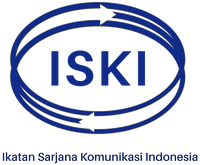The editorial board makes the publication ethics for Jurnal Komunikasi Universitas Garut: Hasil Pemikiran dan Penelitian to avoid plagiarism in publication. This publication ethics applies to writers, editors, and reviewers. The publication ethics refers to the ethical requirements set by the scientific publication of the Majelis Profesor Penelitian (MPR) Indonesian Institute of Sciences (2014).
Author Task
The author presents accurate articles and ensures that written articles are the work of their own or consist of several writers who have originality values and if they have used the work and/or words of others, that have been quoted appropriately.
The written article basically describes the research that is different from those who have been published, although on the same theme. Therefore, the author may not submit the manuscript that has been published in another journal.
The author of the article is a writer who has a significant contribution in writing articles and people who indirectly make a major contribution to the work in the article may not be registered as a writer but must be recognized in the "Acknowledgments" section.
When the author discovers significant errors or inaccuracies in their published work, the author must immediately notify the editor or publisher of the journal and work with them to correct or correct the article. If the editor or publisher knows from a third party that the published work contains significant errors or inaccuracies, then it is the obligation of the author to immediately correct or provides evidence to the journal editor about the correctness of the article written.
The author is obliged to correct the text that has been given input, suggestions, and improvements with full responsibility so that the truth of the writing of this article can be accounted for.
Editor Task
Journal editors, evaluate texts submitted exclusively based on their academic achievements (interests, originality, study validity, clarity) and their relevance to the scope of the journal. The editor in Chief has full authority over all journal editorial content and time for publishing the content. Editors and editorial staff will maintain and confidentiality of articles. All submitted articles are considered for publication undergoing peer-reviewed by at least two reviewers who are experts in the field of communication.
Reviewer Task
Reviewers must provide an honest and critical assessment of a study. The work of the reviewer is to analyze the strengths and weaknesses of the research, provide suggestions for improvement, and clearly state what should be done to improve work enthusiasm. Reviewers do not act to manipulate the process to force the writer to discuss issues of interest to the reviewer himself.
Reviewers must maintain the confidentiality of the existence and substance of the manuscript. It is very inappropriate to share the script or discuss in detail with others or even reveal the submission of the manuscript for publication.
Reviewers must not be involved in plagiarism. Plagiarism by taking new data or concepts from a text before it is published for itself is a very serious violation.
Reviewers must avoid conflicts of interest. For example, the reviewer must refuse to review the manuscript he is involved in. Reviewers must also avoid bias affecting the review. For example, a positive study result will benefit its position.
Reviewers should only accept manuscripts in their field of expertise. The exception to this general rule is when a special editor requests your views as a "layperson" or seeks your opinion on specific aspects of the text (for example, statistics).
Reviewers must be able to complete the review on time. If there are things that hinder the review so that a delay occurs, the reviewer must immediately contact the editor. It would be very tormenting for scriptwriters whose review process is long because of slow reviewers.
Reviewers must write a constructive and collegial review. This will be very helpful for young researchers. Nothing disappoints new researchers (or even more experienced) than receiving sarcastic and destructive reviews. However, reviewers don't avoid discussing the weaknesses (or strengths) of a study.
Publisher Task
The publisher, together with the editor, takes reasonable steps to identify and prevent the publication of papers in which research errors have occurred, and under no circumstances does it encourage such violations or deliberately allow such violations to occur.
Each article is received and published in the Journal of Communication University of Garut: The Results of Thought and Research, grammar and sentences are examined with the Grammarly® application and it is recommended to use the Mendeley Manager Reference application.


 Download Template Jurnal
Download Template Jurnal














